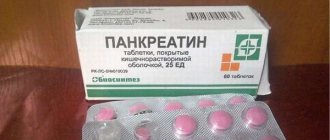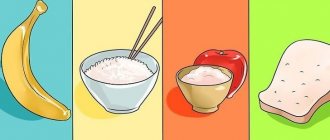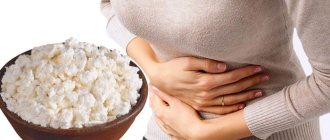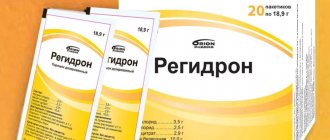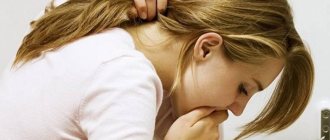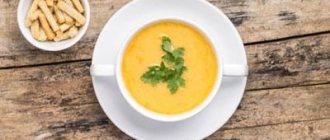Do you need a diet?
Most often, poisoning is caused by the bacteria Staphylococcus aureus and Escherichia coli. They are contained in low-quality products that have expired, which were stored in disregard of the conditions provided by the manufacturer or standards, and were prepared in non-compliance with sanitary standards. You can get poisoned if you eat poisonous mushrooms, fruits or plants.
Diarrhea is caused by a wide variety of reasons - from stress and infection to intolerance to any product. Diarrhea often occurs in travelers who eat food that is unusual for them in other countries. Diarrhea is also one of the symptoms of poisoning.
The digestive system and liver take the main blow in case of poisoning. Therefore, dietary nutrition is one of the main measures that helps to cope with the harmful effects of poisons and toxins on the body.
What should you avoid after intoxication?
If you consider the list of prohibited products in detail, you may be horrified at how extensive it is. The only good thing is that the diet should be followed for a fairly short period. When creating a menu, you should immediately remove from it elements that contribute to increased production of hydrochloric acid. It is necessary to avoid excessively salty or spicy foods, substances with a high content of essential oils, and organic acids. You need to be very careful with complex carbohydrates - although they are necessary, at the same time their use increases the load on the digestive system. Also, their danger lies in fermentation processes, which contribute to bloating and pain, and irritate the mucous layer.
The list of prohibitions includes:
- bread products and pastries without exceptions;
- fatty broths, complex soups - okroshka, borscht and rassolniki;
- fatty meat and fish varieties;
- mushrooms, regardless of their type;
- canned food, any types of sausages;
- fresh vegetables (boiled ones should also be delayed);
- semi-finished products, fast food;
- any fermented milk products, hard cheeses and sour cream;
- coarse cereals, which include pearl barley, corn and barley;
- legumes;
- marinades, smoking and pickling, sauces, spices, mustard, vinegar, pepper and horseradish.
It is undesirable to eat fresh sour berries, tree fruits, vegetables - radishes and radishes, green apples and currants, and so on. Concentrated juices, strongly brewed teas, and sweet soda are dangerous.
Drink
Dietary nutrition for poisoning and diarrhea involves consuming a sufficient amount of liquid. Diarrhea, or diarrhea, in itself is not dangerous to health. The disastrous consequences are dehydration and loss of microelements.
In the first days of the disease, drink plenty of fluids. According to standards, the patient should drink 250 ml of liquid every hour. The following drinks are useful:
| Drink name | Effect on the body |
| Weak infusion of St. John's wort | a natural antibiotic that promotes the death of pathogenic bacteria |
| Weak green tea | has a bactericidal effect, removes toxins |
| Chamomile decoction | relieves inflammation, soothes |
| Congee | has astringent properties, binds masses in the intestines, cleanses the body of toxins, prevents fermentation, eliminates flatulence |
| Rosehip infusion | multivitamin plant, contains tannins, increases immunity, has general strengthening, hepatoprotective properties |
The body should receive water - mineral, but without gas, boiled warm. If the patient refuses to drink, he is forced to drink. Start with a tablespoon per hour, gradually increase the dose to a glass.
In the first week after the illness, it is recommended to give up natural coffee due to its strong diuretic effect, which only aggravates the patient’s condition.
In case of poisoning, there is a need to restore the water-salt balance. Salts are excreted from the body through feces and vomit. Therefore, part of the daily portion of water is replaced with special preparations - Regidron, Gidrovit, Citrogluxolan. These drugs have a rehydrating effect. They are sold in pharmacies in the form of powders that are diluted in water.
If the patient drinks a lot of fluid, then the injection of drugs into the veins will not be necessary.
What medications should adults take for poisoning with diarrhea and vomiting?
The first step in case of intoxication in an adult is to lavage the stomach with a solution of potassium permanganate (potassium permanganate), which is drunk and induced vomiting. Potassium permanganate is an excellent adsorbent; it binds and removes toxins, and has an antimicrobial effect. As additional adsorbents, you can use activated carbon at the rate of one tablet per ten kilograms of weight, Enterosgel. It is important to take saline solutions, such as Regidron. The solution can be prepared at home by dissolving a spoonful of salt in a glass of water. Salt retains liquid and disinfects, which is extremely necessary for vomiting and loose stools after intoxication. It is also recommended to do a cleansing enema. For adults, you can use an enema with an infusion of chamomile flowers, mint, burdock root or a solution of potassium permanganate.
Anti-diarrhea medications are not recommended for use during intoxication, as they will delay the removal of toxic substances from the body. Also, you should not lower the temperature if it does not exceed 39 degrees. For cramps and pain, you can drink No-shpa, Drotaverine. After the vomiting stops, probiotics or prebiotics are prescribed to restore the microflora in the intestines, for example, Hilak-Forte.
Prohibited Products
Therapeutic nutrition involves avoiding a number of foods. You should not eat fatty or protein foods, as the body spends a lot of energy to digest them. The black list for poisoning includes:
- alcoholic drinks, for diarrhea you can drink red wine - up to 50 g per day;
- fatty meats and fish;
- oil, for diarrhea without intoxication, is added to porridge;
- semi-finished products;
- mushrooms;
- sour fruits;
- carbonated drinks;
- sauces – mayonnaise, ketchup, etc.;
- confectionery, baked goods and desserts;
- sweet syrups;
- sausages;
- fried, smoked, canned food;
- seasonings, onions, garlic;
- millet, oatmeal, pearl barley;
- eggs (except for steam omelettes).
The patient's diet in the first days should not contain fresh vegetables and fruits due to the laxative effect. They can be returned to the diet only on the fourth day. But it is desirable that they be heat treated.
In the first week, limit the consumption of dairy products, as they only intensify the manifestations of the disease. But then they should be present on the menu to help restore the intestinal microflora. If you have loose stools, you can eat mild, low-fat cheese, fresh homemade cottage cheese, add milk to porridge, but not more than 1/3 of the serving volume.
Dietary food prohibits the consumption of ready-made jelly and compotes. In case of poisoning, it is better to cook them yourself, with minimal addition of sugar.
Recommended Products
The diet for poisoning is compiled taking into account the condition of the person provoking the disease. For example, damage from alcohol, mercury vapor, vinegar, nitrates, chlorine, and drug overdose require specific treatment. Often the patient is taken to the hospital in an unconscious state, the situation is complicated by severe burns to organs. Naturally, in this case you cannot feed yourself. All mineral and vitamin complexes are administered intravenously.
In case of food poisoning, such a picture is rarely observed, for example, if a person wanted to eat mushrooms and accidentally consumed toadstool. More often than not, food intoxication is not accompanied by such dire consequences and can be treated at home.
You are allowed to prepare the following dishes:
- Vegetable soup, which it is advisable to puree.
- Steamed meat cutlets and fish meatballs.
- Cottage cheese soufflé.
- Rice and buckwheat boiled in water.
- Baked vegetables, pears or apples.
- Protein omelet.
- Kissel.
You can feed the patient dry biscuits, preferably drink mineral water with released gas, and weak teas. Eating dairy products is allowed after 5–7 days. The set should contain not only milk, but also kefir, yogurt, and yogurt, which normalize the intestinal microflora.
Restorative products
There are components that have a healing effect in case of poisoning. They absorb harmful substances, improve intestinal motility, and are absorbed quickly.
List of useful ingredients:
- Water – eliminates toxins, cleanses the digestive tract, maintains electrolyte balance. You can take mineral, for example, Borjomi.
- Rice porridge - reduces diarrhea.
- Bananas are rich in fiber and vitamins.
- Chicken broth - reduces hunger and has an enveloping effect.
- Rosehip tea - replenishes the amount of ascorbic acid necessary for the body, enhances the separation of urine, along with which toxins are released.
- Homemade brown bread crackers contain group B and fiber.
- Compote made from dried fruits fights diarrhea.
Before using the diet, you should check with your doctor about contraindications. You may not be able to eat certain foods due to chronic illnesses.
Power Requirements
The principles by which the nutrition of a patient in case of poisoning is organized:
- the energy value of the daily portion on the first day should not exceed 1 thousand kcal;
- mechanically and chemically mild effect on the digestive system;
- food and drink are served warm, not cold or hot;
- enveloping effect;
- products with a choleretic effect and those that enhance intestinal motility are excluded;
- food consistency – liquid or semi-liquid;
- lack of fermentation effect;
- dishes are steamed or boiled.
If intoxicated, the patient can eat:
- baked goods – biscuits, drying;
- cereals boiled in water and without adding oil - buckwheat, rice;
- meat – lean, without films, tendons, connective tissue, preferably pureed in the form of cutlets, soufflés, meatballs;
- low-fat varieties of fish - pollock, cod, fillet are recommended to be wiped;
- slimy soups, weak meat broths;
- pasta - no more than once a day;
- freshly prepared low-fat cottage cheese, mild cheese;
- for diarrhea without signs of intoxication, you can eat soft-boiled eggs, omelet, up to two eggs a day;
- vegetables - baked without crust, mashed potatoes, pumpkin, zucchini, green peas, eggplant;
- fruits – baked, puree, jelly, jelly;
- bread – white, dried.
Sample menu
It is recommended to create a menu in accordance with the patient’s taste preferences.
In order to eliminate pain, diarrhea during poisoning, reduce nausea and other unpleasant symptoms, you should pay attention to the correct menu, which must be followed for at least three days after intoxication.
Of course, this menu option is not the only correct one; some variations are possible:
| Second day | The third day | Fourth day | Fifth day | |
| Breakfast. | Porridge made from ground oatmeal, cooked in water. | Buckwheat porridge cooked in water. | Oatmeal with added milk. | Buckwheat porridge with added butter. |
| Lunch. | Strong vegetable broth. | A glass of jelly, two dry cookies. | Baked red apple puree. | Sweet fruit, such as banana. |
| Dinner. | Soup – mashed potatoes, cauliflower and zucchini, two croutons. | Vegetable soup with the addition of a small amount of pasta. | Vegetable soup with meatballs and white bread croutons. | Vegetable stew, a small piece of chicken baked in its own juices. |
| Afternoon snack. | A glass of thick jelly. | Vegetable broth. | A glass of yogurt. | Cottage cheese casserole with raisins. |
| Dinner. | Vegetable stew made from zucchini and cauliflower. | Mashed potatoes. | Warm vegetable salad, a piece of boiled fish. | Casserole of vegetables and lean minced meat. |
| Second dinner. | A glass of broth. | A glass of jelly, one dry cookie. | A glass of compote, two cookies. | A glass of kefir. |
Remember that a single serving of food should not exceed 250 milliliters. A limited amount of food consumed will prevent overeating and excessive stress on the stomach.
Sample menu for 3 days
On the first day of illness, it is advisable to refuse food; you can eat only if you have an appetite. The daily portion is divided into 6-7 doses to reduce the tension of digestive forces.
This is approximately what your diet should be like in the first days.
- Day 1: homemade crackers, tea without sugar, in the evening you can have weak chicken broth, without vegetables and spices;
- Day 2: fruit jelly, crackers, tea, watery semolina porridge, boiled meat (chicken fillet, veal), weak broth, tea without sugar;
- Day 3: weak fish with meatballs; cottage cheese casserole made from low-fat cottage cheese; steam omelette, crackers, tea without sugar.
If you have diarrhea on the first day, it is recommended to eat bird cherry compote or blueberry jelly and crackers. You can drink whey, which prevents rot in the intestines, or strong tea.
From the fourth day, they gradually return to their usual table, introducing vegetables, fruits, and other foods into the diet. Single servings are increased by reducing the number of meals.
Authorized Products
Nutrition for poisoning involves simple food and soothing drinks:
- Rice cooked in water
- Mashed potatoes
- Crackers or toast
- Grated carrots
- Bananas
- Natural yogurt
- Vegetable and chicken broth
- Homemade jelly
- Dried fruits compote
- Herbal teas
In addition to rice, you can diversify your diet with other cereals, such as buckwheat or oatmeal. The consistency of the cereal should be liquid. And they are cooked strictly in water, without oil or spices. Compotes should not be too sweet, and teas should not contain flavorings.
Drinks and soft foods will not burden the stomach, but will provide it with all the nutritional elements. And natural yogurt will be an excellent probiotic that will restore bacterial balance in the body.
Some people find it very difficult to eat when poisoned. When a person tries to eat something, the body rejects the food in every possible way. In this case, force feeding is prohibited; the main thing is not to stop drinking liquid.
When should you see a doctor?
Usually, in case of poisoning, people self-medicate and adjust their diet. But with some threatening symptoms, consulting a doctor becomes mandatory. Such manifestations include:
- no result after 2–3 days of treatment;
- an elderly person or child falls ill;
- loose stools are accompanied by an increase in body temperature;
- an allergy or intolerance to anti-diarrhea medications has appeared;
- psychosomatic reactions occurred - irritability, excitability, sleep disturbances, delusions, hallucinations;
- stools become viscous and black;
- frequent vomiting with copious sputum, which contains traces of blood;
- dehydration of the body.
Causes of diarrhea and vomiting
Loose stools are often accompanied by such unpleasant symptoms as nausea, vomiting, elevated body temperature, pain in the abdominal area, and this can be facilitated by:
- infections, viruses and bacteria;
- poor quality food or water;
- binge eating;
- unbalanced diet;
- taking certain medications;
- nervous shocks;
- alcoholic drinks;
- tendency to allergies;
- diseases of the digestive system;
- pathologies of other organs;
- chemical substances.
In children, diarrhea, vomiting, and high body temperature are associated symptoms of teething. In this case, diarrhea is not a pathological condition caused by food or infectious poisoning.
Why does loose stool and vomiting occur during poisoning?
Stale food and dirty water contain bacteria, which, when they enter the digestive tract, poison it and irritate the intestinal walls. Alcohol and excessive consumption of junk food (fried, smoked, etc.) fill the intestines with waste and toxins. As a result, the body’s defense system turns on and it begins to fight, trying to get rid of the presence of harmful substances through increased bowel movements. A person begins to have diarrhea. The same thing happens with infectious and viral diseases. Once in the intestines, viruses begin to actively grow and multiply, their waste products are absorbed into the blood, leading to intoxication. The body turns on a defensive reaction, trying to quickly get rid of toxic substances, nausea, vomiting and diarrhea appear, and the temperature rises. The body tries to get rid of toxic decay products of pathogenic microbes through frequent bowel movements. And increasing body temperature is a way to destroy bacteria that live and spread only at a certain temperature. In addition, as the temperature rises, metabolic processes, sweating and blood circulation accelerate, and toxic products are more intensively removed from the body.
Prevention of poisoning and diarrhea
Usually the cause of intoxication and diarrhea is failure to comply with personal hygiene rules. Therefore, the main preventive measure is washing your hands after using the toilet, walking, contact with animals, etc.
For normal well-being, you should follow simple rules:
A person cannot live without food. That is why we often approach the issue of nutrition with all responsibility, carefully select high-quality products and subject them to heat treatment. But despite this, food poisoning is not uncommon these days. In some cases, this happens due to the irresponsibility of the manufacturer; in others, we ourselves do not pay attention to expiration dates and storage features of food. At the first signs of poisoning, you should not only normalize your health as soon as possible, but also follow a special diet. We’ll look into what an adult can eat if they have food poisoning in this article.
Traditional method for food poisoning
A proven recipe will help alleviate the consequences of body poisoning:
- Boil rice in enough water without salt. Leave the liquid behind.
- An hour later you need to eat rice with black bread. This will allow the body to recover after poisoning.
- Later drink the liquid and eat the remaining rice with bread.
In general, the basic rules for food poisoning are frequent drinking of fluids, exclusion of heavy foods from the diet, increased consumption of strong tea, as well as the presence of a wide list of vitamins in the diet. It is important not to overload the stomach with large portions of food.
You should leave a period of 2-3 hours between meals, and also use vitamin complexes, but only with the recommendations of a doctor. Washing your hands and dishes before eating is a basic rule of prevention. Proper processing of food, especially vegetables and meat, is also extremely important. And finally, if possible, avoid eating in unfamiliar places. Very simple rules will help reduce the risk of poisoning the body.
Why do you need to follow a diet during poisoning?
Vomiting, diarrhea, fever and severe stomach pain are just superficial symptoms of poisoning. In fact, the human body at this time undergoes severe intoxication, and the gastric mucosa is severely inflamed and irritated. In addition, with poisoning and diarrhea, there is a severe loss of important trace elements in the body.
The correct selection of diet will gradually restore the functioning of the stomach and speed up the healing process of the mucous membrane. In addition, a balanced diet will restore electrolyte balance and replenish the body with the necessary proteins, vitamins and microelements. Also, experts say that properly selected products will help eliminate or reduce the gag reflex.
It is worth remembering that failure to adjust your diet can lead to a deterioration in your health and will also accelerate the process of dehydration.
Symptoms of poisoning
Poisonings are classified into two main types: infectious and non-infectious origin. They differ in the nature of their origin, but they have similar symptoms:
- nausea and vomiting;
- loose stools;
- flatulence;
- increased body temperature;
- chills and fever;
- intense sweating;
- spasms and cutting pain in the abdominal area;
- weakness and malaise;
- impurities in the stool (mucus, blood, foam);
- change in the color of urine and feces;
- labored breathing;
- loss of consciousness;
- changes in blood pressure;
- increased heart rate and pulse;
- swollen lymph nodes;
- swelling;
- redness of the skin on the face, neck;
- rash and itchy skin;
- breathing problems;
- grayish-white coating on the tongue;
- dizziness;
- loss of consciousness.
What to drink if you are poisoned?
In case of uncontrollable vomiting and diarrhea, an emphasis should be placed on restoring the water balance in the body, otherwise dehydration may occur. To do this, on the first day of intoxication you need to drink at least 2 liters of warm, gas-free water. Water intakes should be frequent and in small quantities, approximately 100 ml every 20 minutes. It should be remembered that under no circumstances should you drink water in one gulp; sips should be small.
Instead of water, experts recommend using decoctions of chamomile and other herbs, as well as regular black tea, preferably with a slice of lemon. If possible, you can use homemade compotes, fruit drinks and jelly.
Other treatments
Dieting is not the only treatment method, but it is recognized as the most effective. In addition, the following are often used:
- Colon lavage. After the first urge to vomit, you need to drink a little more than half a liter of warm water with table salt or potassium permanganate. After this, there will be a second attack of vomiting, with which all the harmful substances will come out.
- Restoration of lost fluid and water-salt balance. Regularly, after bowel movements, you need to drink at least 200 milliliters of liquid in small sips.
- Drug treatment. The modern pharmaceutical market offers a wide range of drugs for prompt relief of the cause of poisoning and elimination of developed symptoms.
Watch a video on diet after poisoning
Features of nutrition in case of poisoning
Eating the right foods in case of poisoning will help the gastric mucosa recover faster, but it is worth remembering that in order for the patient to begin to feel better sooner, it is worth spending one day on bed rest and getting more sleep.
The main features of nutrition in case of poisoning are:
- Eating food in small portions;
- Increasing meals up to 6-8 times a day;
- Reducing daily calorie intake;
- Exclusions of fatty, spicy and salty foods;
- Eating chopped or pureed food.
Food should only be eaten warm, as hot and cold food irritates the gastric mucosa. Also, do not forget about taking sorbents, which will help quickly remove toxic substances from the body.
Foods that most often cause poisoning
There are a dozen Russian foods that most often cause poisoning. Let's look at each of these products in order.
- Eggs. Often the bacterium that causes salmonellosis, salmonella, settles in eggs. When eating eggs that have not undergone proper heat treatment, salmonella enters the human body.
- Meat and fish. This includes a wide variety of meats: beef, lamb, pork, poultry, and so on. This category also includes fish. Meat also very often contains various kinds of bacteria, which, if not properly processed, remain in it.
- Dairy products. Surely, this category does not raise questions or contradictions for anyone.
- Meat products. This includes cutlets, sausage, ham and other dishes. The reasons are the same.
- Aspic. Jelly provides an excellent environment for the colonization and proliferation of bacteria.
- Salads. In our country, salads dressed with mayonnaise with potatoes, eggs, onions, and so on are very popular. These are the best conditions for the life of pathogenic bacteria, here there are nutritious carbohydrates - starch and the presence of oxygen and sugar.
- Confectionery with cream.
- Fruits and vegetables. This is especially true for root vegetables, which become contaminated with microorganisms carried by rodents.
- Seafood. This is the most dangerous group, as if prepared incorrectly they are a great danger.
- Rice. During cultivation, rice often becomes infected with the bacterium Echinocereus. In addition, the bacterium affects rice when dishes are left at room temperature for a long time. For this reason, when preparing sushi and rolls, rice is disinfected with vinegar. However, not all chefs follow this technique, and as a result, poisoning after eating sushi and rolls is quite common today.
Approved and restorative products
Acute food poisoning entails a lot of consequences, so adherence to a strict diet and special diet during the period of treatment and recovery is simply necessary. But despite many contraindications, there are foods that patients eat specifically to restore stomach function and suppress gag reflexes and diarrhea.
The list of such products is not long, but their intake is necessary to normalize health:
- Boiled or baked vegetables and fruits;
- Porridge on the water. Rice is especially useful;
- Rye crackers without flavoring additives;
- Herbal decoctions;
- Fillet of non-oily fish, steamed;
- Boiled ground meat or ready-made baby meat purees;
- Dry cookies or biscuits.
Blueberries will also help eliminate signs of diarrhea. But you should treat natural juices more carefully. A person suffering from gastric disorders is allowed to drink apple, banana, pomegranate and carrot juice. You should completely avoid orange or grapefruit because they contain acids that can harm an already irritated stomach.
How to prevent re-poisoning?
Food poisoning can occur in humans when consuming foods that contain bacteria. Different people do not always react the same way to the same virus. Some are more resistant, others become infected immediately.
Bacteria that cause food poisoning get on food in different ways. They may be present in the product initially, upon purchase (on fruits, vegetables), or they may develop as a result of improper storage or failure to meet expiration dates. The source of infection may be insufficiently clean counters, containers, or hands.
The following preventive measures will help minimize the risk of food poisoning:
- washing hands thoroughly before preparing and eating food;
- thorough washing of vegetables and fruits;
- keeping knives and cutting boards clean (especially wooden ones used for cutting raw meat or fish);
- Complete defrosting of meat, poultry, fish in the refrigerator before cooking;
- good heat treatment of meat and fish products;
- storing raw foods separately from prepared foods, in closed containers;
- compliance with the rules and shelf life of prepared food, canned food and semi-finished products;
- do not store food at temperatures above +4°C;
- when heating food, bring the temperature to at least +60°C;
- try not to eat in inexpensive canteens, bistros and other catering establishments;
- be careful on vacation, especially in tropical southern countries.
Following these simple rules will guarantee that you will not get food poisoning. And if, nevertheless, a bacterial infection accidentally enters your body, act in accordance with the rules described above. Help the body cope with the disease and continue a healthy existence, without bacteria.
What should you not eat if you are poisoned?
In case of poisoning, the consumption of many foods becomes prohibited. The reason for this is their poor digestibility; in addition, certain foods can often carry special negative consequences. For example, fermentation, gas formation and increased acidity. That is why patients are advised to avoid eating fried, salty, spicy and smoked foods. Also, if poisoned, you should not consume baked goods, dairy products, raw fruits and vegetables, alcoholic and carbonated drinks, sweets, coffee and mushrooms. All these products have an irritating effect and provoke new attacks of vomiting or diarrhea.
Diet for poisoning (with diarrhea and vomiting) for children. What to feed the child?
When treating a child with diarrhea and vomiting, it is imperative to provide him with plenty of fluids, for which you can use jelly, decoctions, compotes of apples, rose hips, chamomile, St. John's wort, and blueberries. Nutrition should be limited, if this is a breastfed child, you need to continue to breastfeed him, excluding complementary foods, while the mother should eat only dietary foods: nothing fatty, spicy, sour, no fresh fruits and vegetables, nuts. If a child eats formula, you need to continue to feed him with it, but switch to lactose-free food.
An older child after intoxication is transferred to dietary nutrition. In the first hours of diarrhea and vomiting, it is not necessary to feed the child, the main thing is that he receives enough fluid. The child should drink every half hour and after each bowel movement. When vomiting, you can feed him a decoction of rice, which envelops the walls of the stomach and protects against toxins. The child should eat often, but in small portions. Breaks between feedings should not exceed three hours, and drinking must be done in between. Even if the condition improves, you need to feed the child only pureed food. You can eat slimy porridges made from rice or oatmeal. Banana puree and natural yogurt are allowed. Also, after diarrhea and vomiting, you need to feed the child food rich in proteins; pureed boiled meat is suitable for this. It is equally important to ensure that the child’s body receives vitamins and minerals. A very good remedy for this is mashed bananas and baked apples, which, moreover, help improve digestion, eliminate the urge to vomit, and remove toxins.
What can you eat after poisoning?
Even after normalization of health and restoration of stomach function, patients are advised to adhere to a special diet for at least another week. This is done so that the stomach can completely restore its microflora and heal the mucosal walls. In addition, dietary nutrition will help prevent relapse.
On the first day of poisoning, experts recommend completely refusing to eat and focusing on drinking water. As a last resort, the patient can afford to eat a couple of crackers and wash them down with warm tea.
The next day, if you feel better. Doctors recommend switching to frequent eating in small portions. For breakfast, an excellent option would be to eat rice porridge with water. At lunchtime, low-fat meat broth is suitable. And for dinner, you can eat a small piece of steamed fish fillet. Baked apples, crackers or biscuits can serve as light snacks.
After complete improvement of the condition, the patient can begin to introduce meat products into the diet, for example, seasoned chicken meatballs or chicken breasts. You can also gradually introduce fermented milk and low-fat products. The ideal option in this case would be kefir, but you should take into account that a fresh product can cause diarrhea, so you should choose a dairy product that has been aged for 2-3 days.
In the following days, you should try to make the menu more varied, but do not rush to introduce heavier foods.
It is worth remembering that the issue of choosing food products must be approached with full responsibility and try to consume only proven products that meet all expiration dates and are subject to proper storage.
Expert opinion
It does not matter who was intoxicated, a child or an elderly person. You should call a doctor, especially when there is a painful syndrome, the temperature rises - similar symptoms often develop with appendicitis.
If trouble occurs, first aid must be provided. The condition of the victim largely depends on the actions of others. But in any case, you need to take the patient to the hospital, where they will provide proper treatment and advise the optimal diet for a quick recovery.
Daria Shirochina
Practitioner. She graduated with honors from Vitebsk State Medical University in 2012 with a degree in general medicine. She was awarded a certificate of honor for her achievements in her work.
What foods are allowed to be eaten?
In acute food poisoning, nutrition plays a very important role, which is why doctors strongly recommend following a strict diet and eating regimen. This will allow the body to recover faster.
Allowed and prohibited foods
So, it’s worth finding out in more detail what an adult can eat in case of poisoning and diarrhea:
- vegetables and fruits exclusively baked:
- low-fat steamed fish (only sirloin);
- porridges that are cooked in water, special attention is paid to rice;
- various weak herbal decoctions;
- rye bread crackers prepared at home in the oven;
- any dry cookies without additives or sweeteners, biscuits are suitable;
- any meat in the form of baby puree, you can buy or prepare it yourself.
If diarrhea worsens, you can eat a small amount of blueberries, as they help eliminate the unpleasant symptom. But it is better not to use natural juices, as they will only worsen the situation.
What else can and cannot be eaten if poisoned?
The importance of dieting
Poisoning the body with food causes significant harm to human organs, causing discomfort and causing poor health afterwards. Often, a person who has survived poisoning refuses to eat for some time because the functions of the stomach and intestines are impaired.
However, in such cases, it is the diet that contributes to a speedy recovery, so it is extremely important to follow a certain diet, eating only foods that are not harmful to the condition. The main reasons for following a diet are:
- restoration of fluid balance;
- freeing the digestive tract from heavy foods;
- the body receives beneficial bacteria;
- accelerated elimination of harmful microbes.
In order to correctly restore the familiar atmosphere inside the body, a number of rules should be taken into account:
- Refusal to eat food on the first day. It is important to understand here that poisoning contributed to the loss of the body’s usual rhythm. In this case, it is important for him to recover from the stress he has suffered.
- Abundant fluid intake. An extremely important point, since water helps flush microbes from the body. IMPORTANT: drink liquid in small sips to avoid vomiting.
- Suppressing appetite with crackers. A dried out piece of bread from yesterday will also work.
- Food restriction for up to two days. Usually, two days after poisoning, the body begins to come to its senses, and the person’s appetite awakens.
After two days, experts recommend limiting food consumption to: crackers, rice water, and fermented milk products. Speaking of the latter, the body’s reaction in each person can be ambiguous, so a diet with a low percentage of fat is allowed.
What is allowed to drink
We have already described the main list of what an adult can eat in case of poisoning and diarrhea, now we will dwell in more detail on what can be drunk in such a situation.
There are drinks that will benefit the body in case of poisoning, these include:
- solution based on Regidron;
- green tea, lightly brewed;
- purified or boiled drinking water;
- mineral water (necessarily without gas);
- homemade jelly;
- healthy infusions such as rosehip or blackcurrant.
The drink should be warm and slightly concentrated.
A decoction based on St. John's wort has good astringent properties; it helps with diarrhea.
Dangers of poisoning
Poisoning can have serious consequences for both the growing body of a child and an adult. As a result of intoxication, the functioning of many human systems and organs occurs: kidneys, liver, pancreas, intestines, stomach, metabolic processes, blood circulation, nervous system. Often, after intoxication, an adult is susceptible to diseases such as arthritis, obesity, diabetes, and allergies. The consequences of intoxication also include decreased visual acuity and heart failure. Any intoxication is accompanied by loose stools and vomiting, which are the causes of dehydration and vitamin deficiency. These phenomena are especially dangerous for children. A lack of vitamins can cause organ pathologies in a growing child’s body. Dehydration is even more dangerous for babies; rapid loss of fluid as a result of diarrhea and vomiting can be fatal.
Basic nutritional recommendations
If poisoning has occurred and its main symptoms have been relieved, you can begin to gradually eat.
Dietary recommendations
In order not to harm the body, it is recommended to follow some tips:
- The patient will have to give up fresh fruits and vegetables. These foods should be returned to the diet no earlier than the fifth day of recovery. In this case, on the fifth day it is best to heat-treat vegetables and fruits.
- In the first days, fermented milk products are excluded, as they only intensify the painful sensations. Fermented milk products can be introduced only after the main symptoms disappear. Kefir and low-fat cottage cheese help improve the functioning of the digestive system.
- On the first day of poisoning, you should reduce the number of calories consumed; it is best to switch to a lenten menu. You should consume no more than 1000 kcal per day.
- Only soft foods are used for food that will not irritate the mucous membrane of the stomach or intestines, thereby aggravating the situation.
- You will have to temporarily exclude cold and hot drinks from your diet; food is consumed warm.
- Avoid foods that may have a choleretic effect and also lead to increased intestinal motility.
- Exclude from your diet not only fried and baked foods, but also boiled foods. All dishes are steamed.
Principles of proper nutrition
The method of treating food poisoning and diarrhea through proper nutrition is a key point in restoring and normalizing the functioning of the digestive tract. The cost of non-compliance with the basic standards of a gentle regimen and diet is often very high and can lead to the development of both acute and chronic diseases.
As the basic principles of nutrition for poisoning and the symptoms accompanying this pathological condition, it is necessary to mention:
- Providing the body with a short-term nutritional rest. That is, for at least 24 hours after the first symptoms of intoxication appear, the patient is advised to refrain from eating food in any form.
- Then, for at least four days, fermented milk products should be excluded from the diet (see Kefir for poisoning: the benefits of fermented milk product and its proper use), any types of sweets, fresh vegetables and fruits. These products can cause fermentation, thereby causing a worsening of the condition.
- To avoid dehydration during diarrhea, it is recommended to drink more fluids. It is better to drink plain water, unsweetened tea, compotes, fruit drinks. The consumption of carbonated drinks and canned juices is not acceptable.
- It is advisable to eat only foods that have undergone preliminary heat treatment. It is better to prepare them by using methods such as baking, stewing, and boiling.
- It is not recommended to eat excessively hot or cold food; dishes should be warm; this measure will prevent damage to the affected mucous tissues.
- The daily diet should not exceed thousands of calories. This is quite enough to fully provide the body with the necessary nutrients and microelements.
- You should eat in small portions. It is advisable to choose viscous and enveloping foods, for example, soups, purees, jelly.
- It is recommended to avoid consuming not only all types of seasonings and spices, but also table salt.
Soups and purees are the best gentle food
The duration of adherence to a gentle diet is determined in accordance with the degree of intoxication of the body, as well as the general clinical picture. If necessary, as an additional method of treatment, the doctor may prescribe medications (see Medicines for poisoning: what to take for adults and children) that help eliminate the causes and symptoms of intoxication, which the video in this article will tell you in more detail.
Advice! Even if the patient’s condition worsens slightly after poisoning and first aid is provided, it is recommended to immediately consult a specialist. Self-medication against the background of such a clinical picture is extremely dangerous.
Authorized Products
Buckwheat porridge is an ideal dish for patients.
Most patients are interested in a question of this kind: what do they eat in case of poisoning and diarrhea, what dishes and products help reduce unpleasant symptoms and restore the body?
There is a certain list of products, the use of which will help you recover and improve your overall well-being, including:
- Some types of cereals: oatmeal and buckwheat. Before cooking, it is advisable to pre-grind the selected grain using a coffee grinder. Other types of cereals can cause flatulence and diarrhea after poisoning.
- Crackers, dry cookies without added sugar, biscuits, dryers. If you have such a desire, you can eat baked goods, but only dry types.
- Heat-treated vegetables and fruits. It is recommended to eat the following types: bananas, apples, potatoes, cauliflower, zucchini, pumpkin, broccoli.
- Lean varieties of sea fish and meat.
- Fermented milk products with a minimum percentage of fat content without the addition of flavoring additives and food coloring, as well as hard cheeses.
Dietary vegetable stew
In the first five days after poisoning, you should limit your diet to the products listed in the specified list. After the required amount of time has passed, you can gradually introduce familiar dishes and products into your diet, but in very small quantities.
Prohibited Products
Sweets and chocolate are temporarily prohibited
The list of products prohibited for consumption after poisoning is much wider. It is necessary to exclude certain types of dishes and products from the diet for a fairly long period, often more than two to three weeks.
First of all, the following are categorically excluded from the diet:
Any drinks and dishes that contain alcohol, hot seasonings and spices
, including onions and garlic. You should also not consume any types of sauces.
Mushrooms
. It is recommended to exclude them from the diet for a long period.
Vegetables and fruits enriched with high amounts of fiber and acids
. Consumption of these can cause irritation of the mucous tissues of the intestines and stomach.
Whole milk
. From about the fourth day after poisoning, it is permissible to add milk in small quantities to some dishes, for example, porridge.
Any types of sweets, sweet juices, carbonated drinks.
Canned food, marinades, pickles, semi-finished products, dishes
that do not require long-term heat treatment, for example, meat with blood.
Eggs, animal fats, soft cheeses, dairy products
with the addition of flavorings and food coloring.
It is also recommended to exclude all types of flour products and baked goods.
. It is permissible to eat only dried white bread, and in very small quantities.
Some of the products and dishes listed above can be introduced into the diet of a poisoned person after five days. Others should be forgotten for at least a month
A gentle diet will help restore the microflora and damaged mucous tissues of the digestive tract and normalize their functioning.
How to protect yourself from food poisoning
There are a number of rules for safe nutrition, subject to which it is easy to avoid intoxication of the body or reduce the danger to a minimum:
- Increased cleanliness should be observed during the preparation and consumption of food. It is necessary to wash your hands thoroughly, wash dishes using hot water and detergents, and dispose of leftover food in the trash container.
- The presence of even pets in the cooking area is unacceptable.
- Food should be stored in tightly sealed containers, and prepared foods should be stored separately from raw ingredients.
- Raw fish or meat may contain pathogenic microorganisms that can spread to other products, therefore, when preparing these elements, it is necessary to use prolonged heat treatment.
- Food products should be stored at low temperatures, since pathogenic microorganisms multiply rapidly in warm conditions.
When purchasing food and drinks, you should give preference to quality. If the expiration date has expired, they should not be eaten.
Is it possible to eat sweet foods or chocolate if poisoned?
After food poisoning and a strict diet, you especially want to eat a delicious dessert or chocolate. However, such a desire is not at all harmless; it will not be possible to satisfy it without negative consequences. The fact is that sugar, no matter in what form and in what products it is contained, provokes fermentation and promotes the proliferation of pathogenic microorganisms in the intestines.
In addition, chocolate contains extractive substances that help stimulate the functionality of the gastrointestinal tract.
Cocoa is a fairly aggressive component that negatively affects the intestinal and gastric lining. It not only irritates the mucous layers, but also increases the production of gastric juice. Therefore, it is better to avoid eating even a small chocolate bar in favor of natural fruit jelly.
Is it possible to drink alcohol and smoke if poisoned?
For some reason, there is a misconception among people that poisoning and its symptoms can be easily relieved with alcoholic beverages, and that drinking beer after poisoning will not cause much harm. This opinion is fundamentally wrong because:
- Even drinks with a low alcohol content, if they enter the stomach, cause irritation of the mucous layer.
- Inflammatory processes occurring in the digestive system are noticeably worsened.
- When drinking alcohol during a period of intoxication, the pancreas can be damaged - weakened, it is not able to break down ethyl alcohol.
- When intoxicated, the liver also suffers, and alcohol complicates its work, ultimately slowing down the digestive processes and the breakdown of toxins.
All these negative phenomena can also occur when nicotine enters the body. It penetrates the stomach along with saliva, causing severe pain. For a weakened person, smoking is a real poison.
